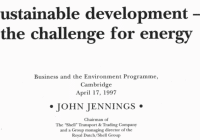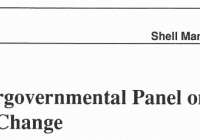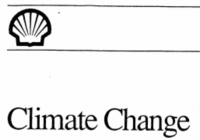2001 State Department Briefing for Exxon’s Randol Meeting
The briefing was sent to Paula Dobriansky, who in 2001 was the Under Secretary of State for Global Affairs. She was also the head of delegation and the lead negotiator on US climate change policy[NN1]. The document was authored by then Acting Assistant Secretary for The Bureau of Oceans and International Environmental and Scientific Affairs […]





